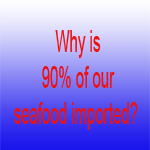
 |
 |
August 8, 1998 EDITORIAL OBSERVER I've been trying for several days now to imagine the person or persons who pulled ashore last week at Little Galloo Island in eastern Lake Ontario and began firing at the double-crested cormorants that nest there, killing nearly 900 of them. It isn't the heat of the act that interests me but its coldness, the fact that it was an economic crime, in all likelihood, rather than an act of murderous insanity. Cormorants feed mainly on non-game fish, yet many anglers believe, falsely, that the cormorants in the Great Lakes have sharply reduced the numbers of game fish, like trout and bass. Someone apparently believed it strongly enough to act upon it. I'm a fisherman, and I've often heard other fishermen cursing cormorants or pelicans or herons, though never with much passion. What those anglers were glibly cursing, I think, was their own inadequacy, their inability to be as stealthy and patient as a great blue heron. Things would be different if a sport-fisherman's life depended on stealth and patience, as a heron's does. Imagine two predators of different species competing for the same prey. If it's only a game to one of them -- i.e., not a matter of survival -- then the Darwinian rules are suspended. Or so it would seem. The slaughter last week occurred because both sides were playing in earnest. By 1973, cormorants in the Great Lakes had declined to only 125 nesting pairs, largely the result of hunting and DDT. But when the shooting began last week, there were some 8,400 active nests on Little Galloo Island alone. The birds there fed in the same waters where local charter-boat captains and fishing guides take their clients. If we liked, humans could fish Lake Ontario with devastating efficiency, the way we do the world's oceans -- so efficiently, in fact, that it would doom cormorants and all other fish-feeding birds almost as an afterthought. But sport fishing is intentionally inefficient. That's one of the things that makes it a sport, one sharing the same ethic, I believe, with naturalists and bird-watchers who welcome the return of double-crested cormorants from near-extirpation in the Great Lakes. But a game fish becomes an economic force in its own right, its value inflated by the money anglers spend on travel, gear and guides just to catch it. And it is the high indirect dollar value of game fish that appears to bring cormorants and the sport-fishing industry into competition, even though the competition is illusory. Scientific evidence suggests that cormorants take only a tiny fraction of the fish that game fish themselves, being cannibals, take when they prey on their own kind. Still, birds make good scapegoats when the fishing is bad. What makes this slaughter notable isn't just its savagery or its magnitude. It's the fact that it reveals in sharp relief the results of direct human competition with other species, something we like to pretend no longer exists now that so few of us live in nature. In fact, the consequences of our competition are merely forgotten in the past or hidden at the far end of a long chain of events for which we like to pretend we can disclaim responsibility. When humans compete with other species, other species always lose. It's one of the tragic, cardinal facts of our history, which is filled with scenes like the one on Little Galloo Island. Copyright 1998 The New York Times Company
|